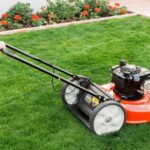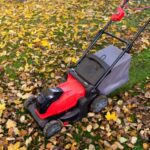What is the Law on Mowing Your Lawn? Since well-kept lawns enhance the aesthetic value of a community, many homeowners take great pride in them and like to see them maintained. The process of trimming your grass is trickier than it looks. Laws and restrictions abound for this seemingly simple task, and they’re all there to make sure that your pleasure of your lawn doesn’t infringe on the rights and welfare of others.
Laws regulating lawn mowing are complicated, and this article will try to simplify them by discussing noise, property lines, and environmental considerations. Let’s read below “What is the Law on Mowing Your Lawn?”
Table of Contents
What is the Law on Mowing Your Lawn
Noise Regulations:
Many individuals find the noise produced by lawn mowers to be rather bothersome. The continual buzzing of lawnmowers is a source of annoyance for people, prompting some towns to enact noise regulations. It is common for these regulations to place time and noise limits on lawn care operations.
Mowing the lawn is usually reserved for specific periods of the day to avoid bothering the neighbours. Do your homework on the local noise ordinances if you want to keep out of court and problems. Remember that disobeying these limitations could result in fines or other penalties, so please be considerate of your neighbours’ right to quiet.
Property Boundaries:
Remember the legal considerations around property lines when you mow your grass. You must know your property lines well and out if you do not want to step on your neighbours’ land. Cutting someone else’s lawn without their permission can lead to a fight or legal action.
To get out of legal hot water, homeowners should familiarise themselves with their property lines. Consulting property surveys or hiring a professional surveyor can help you discover the exact boundaries of your property. Keeping your boundaries neat and tidy will benefit your interactions with both your neighbours and the authorities.
Homeowners’ Association (HOA) Rules:
Residents of communities overseen by homeowners’ associations may be obligated to comply with additional rules and restrictions. Lawn care regulations set out by homeowners’ associations (HOAs) often include mowing frequencies, maximum allowable grass heights, and prohibited landscaping features. Read and observe these regulations to keep the peace in the neighbourhood and avoid fines from the HOA.
Despite how cumbersome the HOA rules are, they serve to preserve the curb appeal of the neighbourhood and protect property prices. If everyone is aware of and follows these norms, the neighbourhood will be more harmonious and beautiful.
Environmental Considerations:
In addition to noise regulations and property lines, there are a lot of environmental considerations that impact the legal ramifications of cutting grass. Depending on the level of environmental impact, lawn care products such as pesticides and fertilisers may be subject to regulation at the federal, state, or even municipal level.
It is important for homeowners to take environmental concerns into account when maintaining their lawns and to be aware of any rules that could restrict the usage of specific chemicals. To encourage ecologically responsible landscaping, some municipalities even provide financial incentives to homeowners. When homeowners are mindful of environmental limits, they can improve their lawn care methods to be more sustainable and responsible.
Nuisance Laws:
A neighbor’s lawn care operations might be considered a nuisance if they significantly disrupt or harm a person’s property. Preventing trespassing and other types of property invasion is the main objective of nuisance laws. In the event that the lawnmower generates an irritation, such as an offensive odour, an excessive amount of noise, or any other kind of trouble, legal action may be taken.
Nobody wants their grass mowed too short or too often, so homeowners need to strike a balance. Being approachable and ready to talk about problems is usually enough to keep the peace in the community and prevent legal disputes.
FAQs
Are there specific regulations regarding the noise levels during lawn mowing?
Quite a few municipalities have noise ordinances that define maximum decibel levels. You should be well-versed in these rules so you can avoid legal trouble.
What are the designated hours for lawn mowing to minimize disturbance to neighbors?
In most cases, local laws will specify the hours that lawn care activities are permissible. Those who own their homes should familiarise themselves with these hours so they can comply with noise regulations.
Can I mow my lawn at any time, or are there restrictions imposed by local laws?
According to municipal restrictions, lawn mowing is typically only allowed at specific times of the day. Checking local legislation is crucial for staying out of legal hot water.
Why is it important to know my property boundaries when mowing my lawn?
You risk getting into a fight with your neighbours or possibly facing legal action over a land dispute if you aren’t aware of your property lines. Accurate information about your property’s borders can be obtained through property surveys or by consulting a professional surveyor.
Do homeowners’ associations (HOAs) have specific rules regarding lawn maintenance?
In most cases, homeowners association regulations will dictate how often lawn care is to be performed, the maximum allowable grass height, and landscaping restrictions. Every homeowner is responsible for reading and following these rules and regulations to keep themselves out of problems with the HOA and to avoid fines.
Conclusion:
There is a complex web of laws and regulations that can affect something as seemingly innocent as cutting your lawn. Householders should educate themselves on the regulations regarding lawn care, particularly those relating to noise limitations and property lines, for the benefit of their own safety and the protection of their neighbours. Being well-versed in environmental standards, HOA laws, and municipal ordinances will help you maintain a beautiful and trouble-free lawn.
Following the laws and being mindful of others allows people to maintain lovely, well-kept lawns and contributes to the prosperity of their communities. I hope you like reading “What is the Law on Mowing Your Lawn?”

Barry, the expert behind LawnInspection.com, holds a Master’s degree in Horticulture and brings over 20+ years of hands-on experience in landscaping and lawn care. With certifications in sustainable lawn management, Barry is dedicated to providing readers with authoritative insights and practical tips for maintaining lush, healthy lawns. His extensive knowledge and commitment to excellence ensure that every piece of advice on LawnInspection.com helps transform your lawn into a green oasis with proven, eco-friendly practices. Connect with Barry on social media: Instagram and Facebook.











